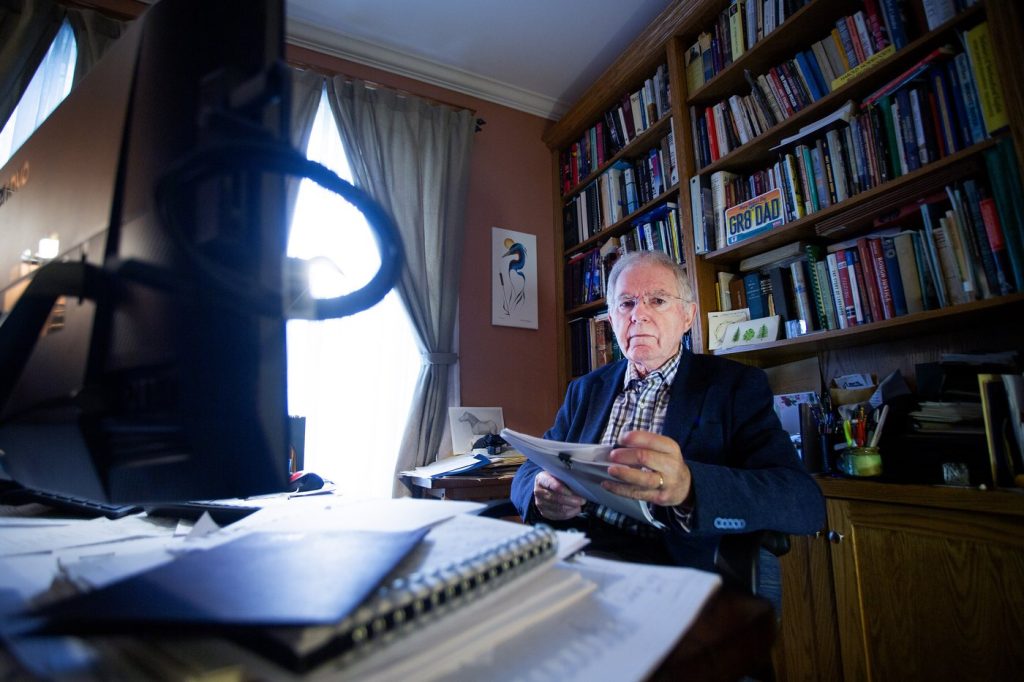ST. JOHN'S — An impending provincial election in Newfoundland and Labrador has emerged as a crucial moment for the public to seek clarity regarding a new energy agreement with Hydro-Québec, with critics suggesting that it could potentially be halted altogether. Jack Harris, a former NDP Member of Parliament, is among numerous former politicians, public servants, and energy experts who have publicly denounced the tentative agreement, warning that it mirrors costly mistakes from the past.
As an election call is anticipated in the coming days, Harris expressed his hope that the electorate will push for a more transparent discussion surrounding the agreement and make their voting decisions accordingly. He voiced his concerns in a recent interview, stating, “We’re actually talking about repeating — with our eyes wide open, supposedly — the failure that was the Upper Churchill from Newfoundland and Labrador’s point of view,” referring to the unbalanced 1969 energy deal with Quebec that continues to negatively affect the Atlantic province.
Harris cautioned, “We don’t need to do this; this does not have to happen, and we’d be fools to do it.” The Liberal government of Newfoundland and Labrador has touted the new memorandum of understanding (MOU) with Hydro-Québec as a transformative development for a province grappling with escalating debt, projected to reach $19.7 billion by next year in a population of approximately 540,000.
However, skepticism exists regarding the proposed deal with Quebec’s hydro utility. Notably, accountant Mike Wilson resigned from a panel that was tasked with overseeing the negotiations for the final contracts, claiming that a more advantageous agreement was feasible. He also criticized the panel for being compromised in its independence and for failing to deliver reports that would meet public expectations.
Progressive Conservative Leader Tony Wakeham has vowed that, if his party wins the election, he will institute an independent third-party review of the draft deal. Wakeham stated, “Based on this independent review, I will demand better terms for Newfoundland and Labrador,” in a fundraising email circulated earlier this month.
Harris, along with eight others—including a former director of Newfoundland and Labrador Hydro—has co-signed a letter urging the utility’s board of directors to either halt the deal or resign, claiming that it undermines the province’s resource value. In response, Newfoundland and Labrador Hydro has countered, asserting that the criticisms contained inaccuracies rooted in “incorrect assumptions and interpretations.”
Nine business leaders also recently sent a letter to Premier John Hogan, asserting that the deal is fair, balanced, and beneficial for the province, arguing that the criticisms oversimplify a complex agreement. The tentative deal aims to terminate a 1969 contract 16 years prematurely that allows Hydro-Québec to purchase the majority of energy produced by the 5,428-megawatt Churchill Falls plant at significantly reduced rates.
As of 2019, the existing agreement has generated close to $28 billion in profits for Quebec while yielding about $2 billion for Newfoundland and Labrador. Under the new agreement, Newfoundland and Labrador Hydro would receive an increased share of electricity from the plant—up to 1,630 megawatts by 2061. Hydro-Québec's financial commitment to the deal could reach approximately $33.8 billion in present-day dollars over the next 50 years, with pricing tied to market factors, including the costs of energy from other sources.
Additionally, Hydro-Québec is expected to spearhead new developments along the Churchill River, including a proposed 2,250-megawatt hydro plant at Gull Island. A new company will be established to own and operate the plant, with Newfoundland and Labrador Hydro holding a 60 percent stake, while Hydro-Québec would secure 90 percent of the power for 50 years, paying rates linked to the building cost of the facility.
David Vardy, a former chair of the province’s Public Utilities Board, articulated his hope that the public would utilize the election as a platform to hold the Liberal government accountable in light of growing criticisms. He expressed concern that the MOU grants Hydro-Québec too much authority in exchange for immediate cash, stating, “My concern is that we’re seen to be on our knees financially, and Hydro-Québec has taken advantage of us.”
In defense of the agreement, Hogan's spokesperson emphasized that the MOU is the fruit of extensive negotiations and expert legal, financial, and energy guidance. Hogan has positioned the MOU as a pivotal election issue, asserting, “It is what we need to talk about as a province.” Harris responded positively, stating, “Then let’s talk about it.” An election call from Hogan is anticipated this week.










